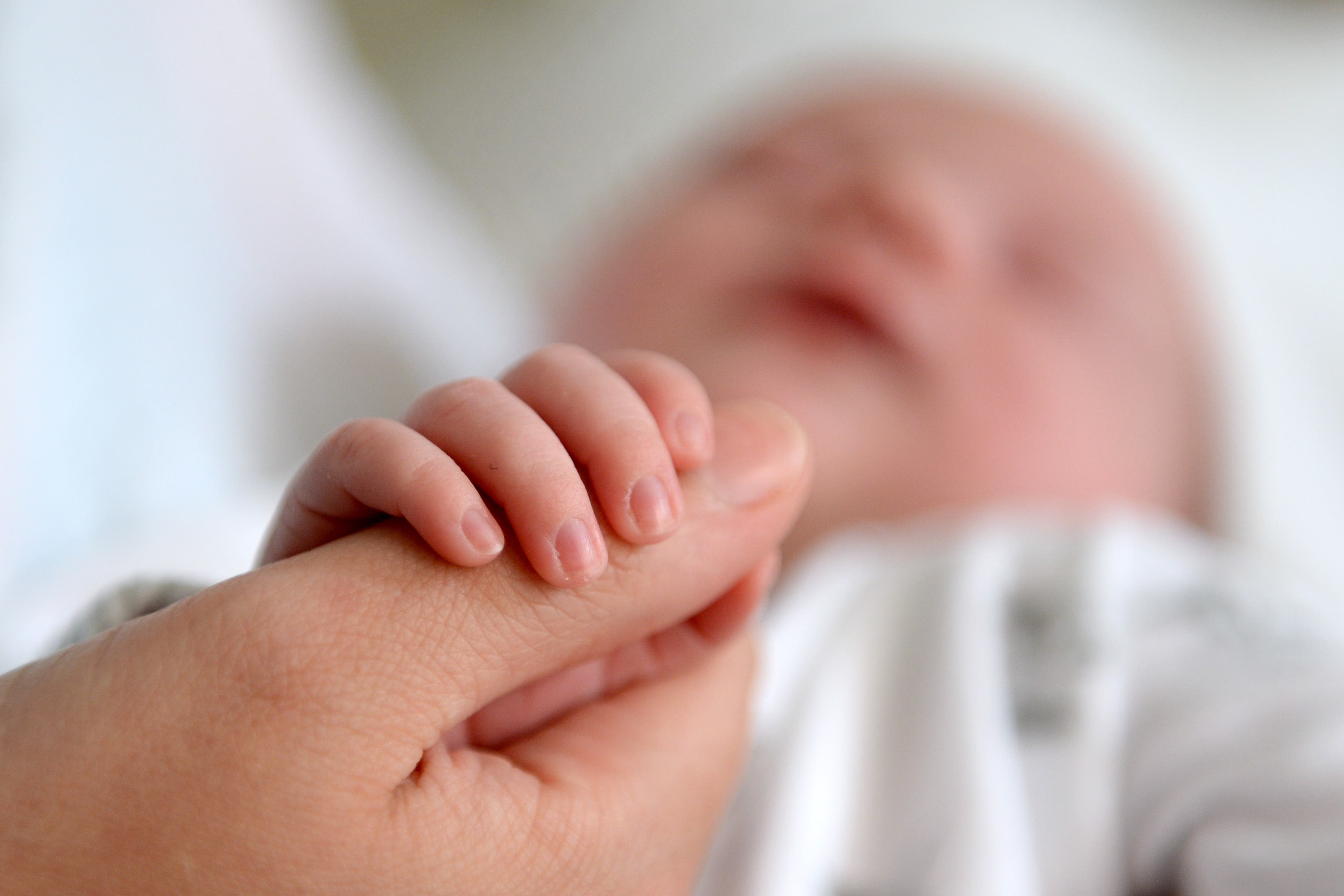Babies’ antibody response to jabs linked to mode of delivery – study
Researchers looked at the relationship between gut microbes and antibody levels in 120 babies who had been vaccinated.

Your support helps us to tell the story
From reproductive rights to climate change to Big Tech, The Independent is on the ground when the story is developing. Whether it's investigating the financials of Elon Musk's pro-Trump PAC or producing our latest documentary, 'The A Word', which shines a light on the American women fighting for reproductive rights, we know how important it is to parse out the facts from the messaging.
At such a critical moment in US history, we need reporters on the ground. Your donation allows us to keep sending journalists to speak to both sides of the story.
The Independent is trusted by Americans across the entire political spectrum. And unlike many other quality news outlets, we choose not to lock Americans out of our reporting and analysis with paywalls. We believe quality journalism should be available to everyone, paid for by those who can afford it.
Your support makes all the difference.Babies “born naturally” have higher antibody levels following vital childhood vaccinations compared to those delivered by Caesarean section.
Researchers looked at the relationship between gut microbes and antibody levels in 120 babies who were vaccinated at eight and 12 weeks against lung infections and meningitis.
They found double the antibody levels in the 101 babies tested for antibodies as a result of the lung infection vaccine in those “delivered naturally” compared with those delivered by C-section.
We have known for quite some time that the mode of delivery is incredibly important when it comes to the type of bacteria which colonise our guts
And the research team also found that for lung infection antibodies, breastfeeding was linked with 3.5 times higher antibody levels compared with formula-fed children who had been “delivered naturally”.
The levels of antibodies as a result of the meningitis vaccine were tested in 66 babies, and the experts found antibodies levels were 1.7 times higher for “naturally delivered” babies, regardless of breastfeeding, compared with those delivered via C-section.
Professor Debby Bogaert, who led the study and is chairwoman of paediatric medicine at the University of Edinburgh, said it was “especially interesting that we identified several beneficial microbes to be the link between mode of delivery and vaccine responses”.
“In the future, we may be able to supplement those bacteria to children born by C-section shortly after birth through, for example, mother-to-baby ‘faecal transplants’ or the use of specifically designed probiotics,” she said.
The research was carried out by a team from the University of Edinburgh, Spaarne Hospital and University Medical Centre in Utrecht, and the National Institute for Public Health and the Environment in The Netherlands. It was published on Tuesday.
We know that our gut bacteria in early life drive the development of our immune system, and natural births are linked with reduced risks of developing inflammatory conditions, such as asthma
The gut microbiome is seeded at birth, developing rapidly over the first few months of life, and is influenced mostly by delivery mode, breastfeeding and antibiotic use.
The team found a clear relationship between microbes in the gut of those babies and levels of antibodies.
For example, among a host of bacteria in the gut, high levels of two in particular – Bifidobacterium and E. Coli – were associated with a high antibody response to the vaccine that protects against lung infections.
High levels of E. Coli were also linked with a high antibody response to the vaccine that protects against meningitis.
The baby acquires the bacteria through “natural birth” and human milk is needed to provide the sugars for these bacteria to thrive on.
The university researchers said that babies’ microbiome in early life contributed to the immune system’s response to the vaccines, and set the level of protection against certain infections in childhood.
Whilst this is an interesting study that adds to our knowledge of how the microbiome develops and the possible implications for immune development, it is still very preliminary and the small group sizes warrant a need for further studies to verify this in larger groups
Experts have now said the findings could help inform conversations about C-sections between expectant mothers and their doctors, and shape the design of more tailored vaccination programmes.
Dr Marie Lewis, researcher in gut microbiota at the University of Reading, said: “We have known for quite some time that the mode of delivery is incredibly important when it comes to the type of bacteria which colonise our guts.
“We also know that our gut bacteria in early life drive the development of our immune system, and natural births are linked with reduced risks of developing inflammatory conditions, such as asthma.
“It is therefore perhaps not really surprising that mode of delivery is also linked to responses to vaccinations.”
And Professor Sheena Cruickshank, immunologist and professor in Biomedical Sciences, University of Manchester, said: “Whilst this is an interesting study that adds to our knowledge of how the microbiome develops and the possible implications for immune development, it is still very preliminary and the small group sizes warrant a need for further studies to verify this in larger groups.
“The data is observational and we can’t be sure of cause and effect.
“Critically, if reproduced, we will need to understand whether possible impacts of maternal delivery and feeding on immune development or vaccine responses can be restored by for example manipulating the microbiome.”